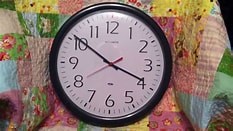
The title might be obvious but based on conversations I had this week with two main street business owners, I thought it might make sense to write this short article.
I deal with main street as well as lower middle market companies. This is more of an issue with the owners’ perception in pricing main street businesses. The conversations I had with two different main street business owners this week were similar, but let’s focus on one as the example.
Prior to the pandemic the owner was making $70,000 in the business and she wanted to sell it for $400,000. That is almost a multiple of 6. I asked her how she felt that was justified and she said that it is a great bargain at that price and where else can someone get a return of almost 20% ($70,000 / $400,000) on their investment.
I said that owning a main street business is likely not a passive investment. The buyer either must run the business or if it is going to be a passive investment, the buyer needs to hire someone to replace the seller and run the business. Therefore, you need to ask “what is the cost of running that business as a salary for the owner operator?” If after deducting the “salary” of the owner operator, there is money left over, that excess is the return of the investment. So, looking at this example again, if the owner operator were to draw a market salary of $50,000 in running this business, then there is only $20,000 left as the “return on the investment”. That puts a much different light on the perception of the possible purchase price.
The other example was similar, but had an added complication. I asked the owner how many hours she worked in a week, and she could not tell me because at times she would have to stay overnight. I asked her how she would estimate the compensation for someone to run her business and she was not able to tell me what it would take to hire someone to replace her. Frankly, I had a difficult time estimating it as well. But this owner did add “that is what I have to do as the owner”.
Main Street business owners need to understand that they are owners AND operators, and they are two different tasks. The operator manages the business and is entitled to a salary commensurate with the market rate. The owner is the “investor” in the business and the amount of profit in the business after paying yourself as a manager represents the return on the investment.
What happens if after deducting the “wages” for the operator there is little or no profit left to compensate the owner? That is a challenge and to make the business more salable business owners should:
- Look at the activities that are not generating an appropriate return. For instance, if the overnight work cannot be built to a level where it makes sense to offer that service, should that service be discontinued? Would discontinuing that service impact the overall customer relationship?
- If the owner wants to increase the salability of the business someday, can revenue and profit be increased – without putting more demands on the owner in the long term?
- If the business is unlikely to grow, then the owners should adjust expectations on the salability and the multiple on the sale of the business.
If selling your business is important to you and your financial future, you need to understand how the market will look at the owner’s role, the profitability of the business and how that will impact the purchase price.


